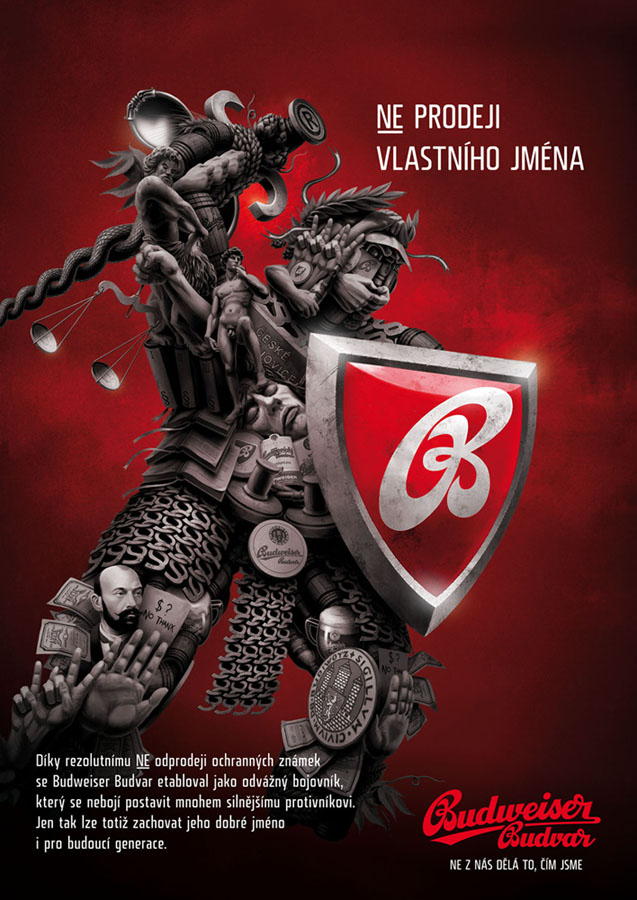As we saw in Australia earlier this year, the alignment of brewers often leads to a re-shuffling of brand licenses. Following the line-up of SABMiller and Turkey's Efes, Carlsberg decided to use a clause in the contract with SABMiller which forces SABMiller to hand the Holsten brand over to Carlsberg's Baltika.
Shareholders of Baltika Breweries, which is majority-owned by Carlsberg, have until 9 August 2012 to accept a voluntary offer for their shares. The voluntary offer is conditional upon the Carlsberg Group increasing its ownership to more than 95 percent.
Who would have thunk - AB-InBev officially rules out certain takeover scenarios? Jo Van Biesbroeck, 55, the Chief Strategy Officer of AB-InBev, has defied rumours that the world’s number one brewer is keen on taking over SABMiller or PepsiCo. Although experience shows that a strategist who comes clean on the truth is actually a contradiction in terms, Mr Van Biesbroeck, in an interview with the Belgian newspaper De Tijd on 29 May 2012, said that "while we always look for opportunities [for deals], our focus is now on internal growth." So organic growth is it for AB-InBev. Hark his words.
It’s probably the same people who can hear the grass grow that have launched the recent rumour that some industry bigwigs are considering a bid for Irish drinks group C&C, the maker of Bulmers and Magners cider and Tennent’s lager. Actually, they have just rehashed speculation that has been flying around for over two years. In May 2012 the story that SABMiller, Carlsberg and Molson Coors (why not Heineken, too?) may have been nosing around C&C made some ripples in the Irish media. Still, none of the companies has been in direct contact with the board of C&C or made a final – and public – decision on whether to pursue a bid or not.
SABMiller’s minority investors are a tad concerned. Some worry that it’s all getting a bit too cosy on the brewer’s board. The recent boardroom reshuffle, announced on 23 April 2012, failed to bring new faces on to the board. Moreover, the elevation of Graham Mackay, SABMiller’s long-standing CEO to Chairman stands to defy UK corporate governance practices, which do not permit a chief executive to become chairperson unless there is a good explanation from the company. The corporate governance codes are also not keen on the chairperson being a full-time executive, as Mr Mackay will be for a year.
The Scottish government announced in May 2012 that its preferred minimum price for alcohol will be GBP 0.50 per unit (EUR 0.63). Health Secretary Nicola Sturgeon was quoted as saying that, at this level, the price was equivalent to the GBP 0.45 per unit price set in 2010 after taking account of inflation. Setting the price at this level would have significant health and social benefits, she added. Under the new legislation, a bottle of wine would cost at least GBP 4.69 (EUR 5.87) and a four-pack of lager at least GBP 3.52 (EUR 4.40).
SABMiller, the last of the big four global brewers to report full year results, said on 24 May 2012 that revenue jumped 11 percent to USD 31.4 billion for the twelve months to 31 March 2012. Pre-tax profit was up 55 percent but that was flattered by more than USD 1 billion in one-off items, including the sale of its Russian and Ukrainian businesses to Anadolu Efes, in exchange for a stake in the business, and the refund of a fine in Europe.
The Belgian Mr Beyens, 50, wanted to be CEO of a company himself. That’s why he left AB-InBev for StarBev when AB-InBev sold its central European unit to private equity firm CVC in 2009.
The dispute over the Budweiser trademark seems to have quieted down as everybody is waiting for the auditors to release their findings on the workings of state-owned Budweiser-Budvar. The report, scheduled for release in June, will ostensibly show if Budvar’s management has been following the rules – and a negative result could give some politicians a greater say over the Czech brewery. The brewery is owned by the Czech Ministry of Agriculture.
No doubt, Diageo would love to lay its hands on a tequila brand like Jose Cuervo – the world’s leader of the tequila category. The transaction has been gossiped about for a year. In early May 2012, several media reported Diageo could be only weeks away from winning control of Jose Cuervo in a deal valuing the spirits company at about GBP 2 billion to GBP 3 billion. A likely option would be a share swap between the controlling Mexican Beckmann family and Diageo, by which the Beckmanns would sell a majority stake in Cuervo in exchange for shares in Diageo.


